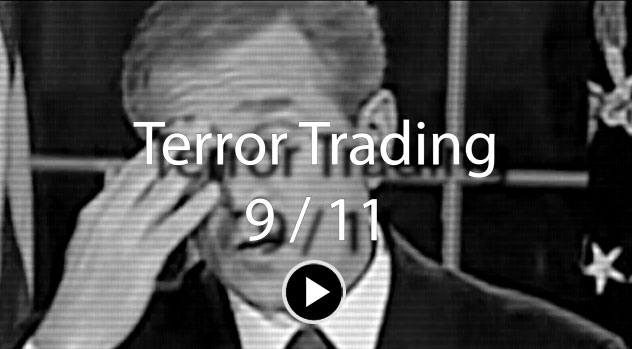Butner
NC - Ponzi king Bernard Madoff is telling fellow jailbirds that he
secretly funneled $9 billion in swiped funds to three people before he
was nabbed, an inmate told The Post.
Madoff says that his partner in crime Frank DiPascali knows who the
recipients are—and that he suspects DiPascali is using that information
to cut a better deal with the feds, according to the inmate at the
medium-security prison in Butner, NC.
“I think it was personal friends,” the inmate said of the recipients of the mega-bucks.
DiPascali, 52, pleaded guilty last year to 10 felonies in connection
with helping Madoff swindle investors out of more than $60 billion at
his Manhattan financial firm.
Madoff, 72, is serving a life sentence, but DiPascali has reportedly
been trying to avoid that fate by cooperating with prosecutors—who
argued strenuously for his release from jail pending sentencing despite a
judge’s initial reluctance to grant bail.
DiPascali remains locked up awaiting sentencing, unable to post a $10 million bond.
DiPascali’s lawyer, Marc Mukasey, did not return a call seeking comment.
The Manhattan US Attorney’s Office, which is prosecuting DiPascali,
and Madoff’s lawyer, Ira Lee Sorkin, had no comment on the inmate’s
claim about DiPascali.
The inmate, who has witnessed the arch swindler’s daily routine, also
detailed how Madoff began attending sessions with a female prison
psychiatrist last year after becoming depressed about a tell-all
published in August by his former mistress, Sheryl Weinstein.
“He was having problems with his wife [Ruth]” over the book’s revelations, the inmate said.
“He felt she might leave him.”
The book, “Madoff’s Other Secret: Love, Money, Bernie, and Me, ”
details Weinstein’s sexcapades with Madoff and how he screwed her out of
her life savings.
The shrink prescribed Madoff antidepressants, the inmate said.
Ruth Madoff did not abandon him and still visits, the inmate said.
But Ruth, who has not been charged, has moved out of New York state to get away from the harsh public attention.
“She’s bought a regular car,” the inmate said. “She’s looking to do
charity work. She wants to have her own privacy and to start a new
life.”
The inmate said Madoff’s sessions with the shrink and the medication
have relieved his stress, which was so bad when he arrived at Butner
last July that he broke out in hives and other skin maladies on his
arms.
But that medication also caused a scare for Madoff on Dec. 18, when
he was found on the floor with a gashed head and face, several broken
ribs and his eyeglasses broken, the inmate said.
“He looked really bad, really bad,” the inmate said. “The buzz was he
got beat up by a bunch of [Washington,] DC, guys that were trying to
extort money.”
That “buzz” led to several media reports that Madoff had been attacked.
But the inmate said that, in fact, Madoff had collapsed in the middle
of the night while getting water because an antidepressant drug he had
begun taking earlier that day interacted badly with another medication.
“He didn’t get beat up,” the inmate said.
At Butner, Madoff is known for regularly hanging around with another
notorious inmate—Jonathan Pollard, who spied for Israel while working as
a civilian intelligence analyst for the US Navy—and former New York
pharmacist John Mancini, who was locked up for illegally distributing
millions of painkillers.
“Jonathan Pollard and him watch TV together. They watch CNN,” the
inmate said. “Bernie likes watching to see if there’s anything about him
on it.”
But Madoff “gets upset” if he disagrees with how he is portrayed on
television and was particularly disturbed by the reports that he had
been assaulted, the inmate said.
Madoff also sometimes chats with Colombo crime-family boss Carmine Persico, who is serving a life sentence at Butner.
“They play boccie” and take walks together, the inmate said.
As with Persico and Pollard, Madoff is one of—if not the most—high-profile inmate at Butner.
“Everybody knows Bernie Madoff,” the inmate said. “Everyone says,
‘Hey, Bernie, how are you doing?’ To a lot of inmates, he’s a god.
“The higher the profile, the more they look up to you.”
Despite such respect, Madoff, who used to work in the prison’s
library, now toils four days a week in a menial job in the commissary.
The inmate said the commissary work was “very strenuous” for Madoff.
Noting that some prisoners order 30 cans or more of soda that Madoff
then has to deliver, the inmate said, “It’s a lot for him to carry.”
The fellow prisoner added that Madoff is being shunned by his two
sons, Andrew and Mark, who worked for his firm and have not spoken to
him since he confessed his scheme to them in December 2008.
“He’s really hurt by their not coming around,” the inmate said. “His sons never [talk] to him, never [write] to him.”
But, the inmate added, “[Madoff] feels eventually—eventually—as time passes, he feels they’re going to come around.”
The inmate noted that Madoff has been able to write to his grandchildren, which gives him pleasure.
And, the inmate said, despite recent reports that Madoff has no sympathy for his victims, “he knows he did wrong.
“He also feels a lot of pain for what he did to people” and hopes
they are able to recover at least some of the money he swindled from
them, the inmate said.
 Before It’s News – by Live Free or Die
Before It’s News – by Live Free or Die








 The
idea that Virginia should consider issuing its own money was dismissed
as just another quixotic quest by one of the most conservative members
of the state legislature
The
idea that Virginia should consider issuing its own money was dismissed
as just another quixotic quest by one of the most conservative members
of the state legislature 